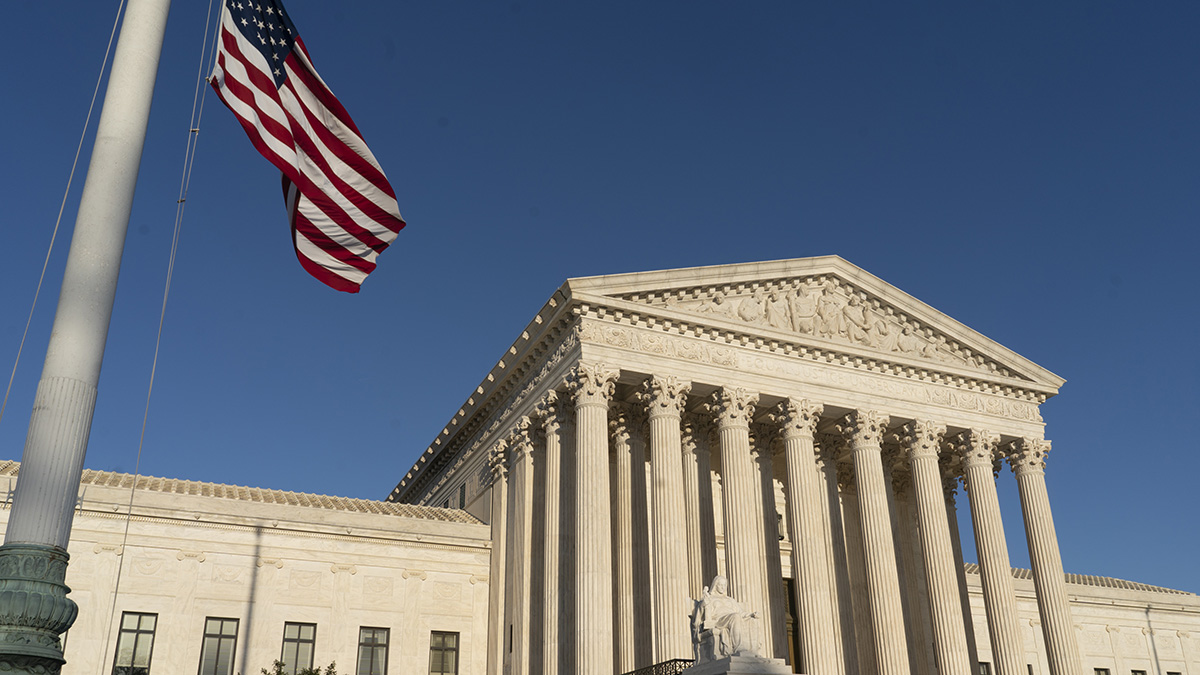In a win for affirmative action, the U.S. Supreme Court upheld an admissions program Thursday at the University of Texas at Austin that takes race into account to achieve a diverse campus.
Justice Anthony Kennedy said in the majority opinion that the university's plan considered race in a way permissable.
"The university has thus met its burden of showing that the admissions policy it used at the time it rejected petitioner’s application was narrowly tailored," he wrote.
[NATL] Top News Photos: Pope Visits Japan, and More
Only seven justices took part in the 4-3 decision. Justice Elena Kagan recused herself because she had worked on the case when she was the U.S. solicitor general. Justice Antonin Scalia, who died in February, was an opponent of affirmative action. His seat remains open.
Kennedy cautioned that the University of Texas must continue to scrutinize its admissions policy, "to assess whether changing demographics have undermined the need for a race-conscious policy; and to identify the effects, both positive and negative, of the affirmative-action measures it deems necessary."
Kennedy was joined by Justices Ruth Bader Ginsburg, Stephen Breyer and Sonia Sotomayor. It was the second time the program had gone before court.
U.S. & World
Dissenting were Chief Justice John Roberts Jr. and Justices Clarence Thomas and Samuel Alito Jr. Alito called the majority decision remarkably wrong.
"What is at stake is whether university administrators may justify systematic racial discrimination simply by asserting that such discrimination is necessary to achieve 'the educational benefits of diversity,' without explaining — much less proving — why the discrimination is needed or how the discriminatory plan is well crafted to serve its objectives," he wrote.
The attorney general of Texas, Ken Paxton, who did not represent the University of Texas before the Supreme Court, criticized the decision. The university should be open to all students based on merit not race, Paxton said.
"Less than 10 years ago, the Supreme Court said that '[t]he way to stop discrimination on the basis of race is to stop discriminating on the basis of race,'" he said. "Sadly, the court today has departed from that guiding principle."
The American Civil Liberties Union of Texas had filed a friend of the court brief on behalf of the program. Its legal and policy director, Rebecca L. Robertson, said in a statement, "After nearly a decade of litigation, including two separate arguments before the Supreme Court itself, the justices finally affirmed what teachers, parents and school administrators have known for years: that diversity in education is essential for student success."
The Democratic leader, Rep. Nancy Pelosi, praised the ruling, saying the strength of the country depended on Americans of all backgrounds having the education to thrive.
"America's institutions should reflect the beautiful diversity of America's people," she said. "The beauty is in the mix."
And President Barack Obama said: "We are not a country that guarantees equal outcomes but we do strive to present an equal shot to everybody and that's what was upheld today."
The case was argued in December, and at the time Scalia drew quick criticism when he said that minority students with inferior academic records may fare better at less academically rigorous schools.
"There are those who contend that it does not benefit African-Americans to get into the University of Texas where they do not do well, as opposed to having them go to a less-advanced school, a slower-track school, where they do well," he said.
Scalia also said most black scientists do not graduate from schools such as the University of Texas but from lesser schools where they do not feel they are pushed in classes too fast for them.
The court first heard the case, Fisher v. University of Texas, in 2013. It was brought by Abigail Fisher, a white student who has since graduated from Louisiana State University and who argued that she was denied admission to the University of Texas based on her race.
The University of Texas automatically admits three quarters of its students from the top 10 percent of state high schools. The remaining students are chosen based on a number of factors, race being one of them.
The Supreme Court’s original decision avoided ruling directly on the program, instead asking a lower court to decide whether the school had adequately justified including race among criteria for admission.
A federal appeals court in New Orleans twice upheld the university’s admission requirements.
Read the decision here:



